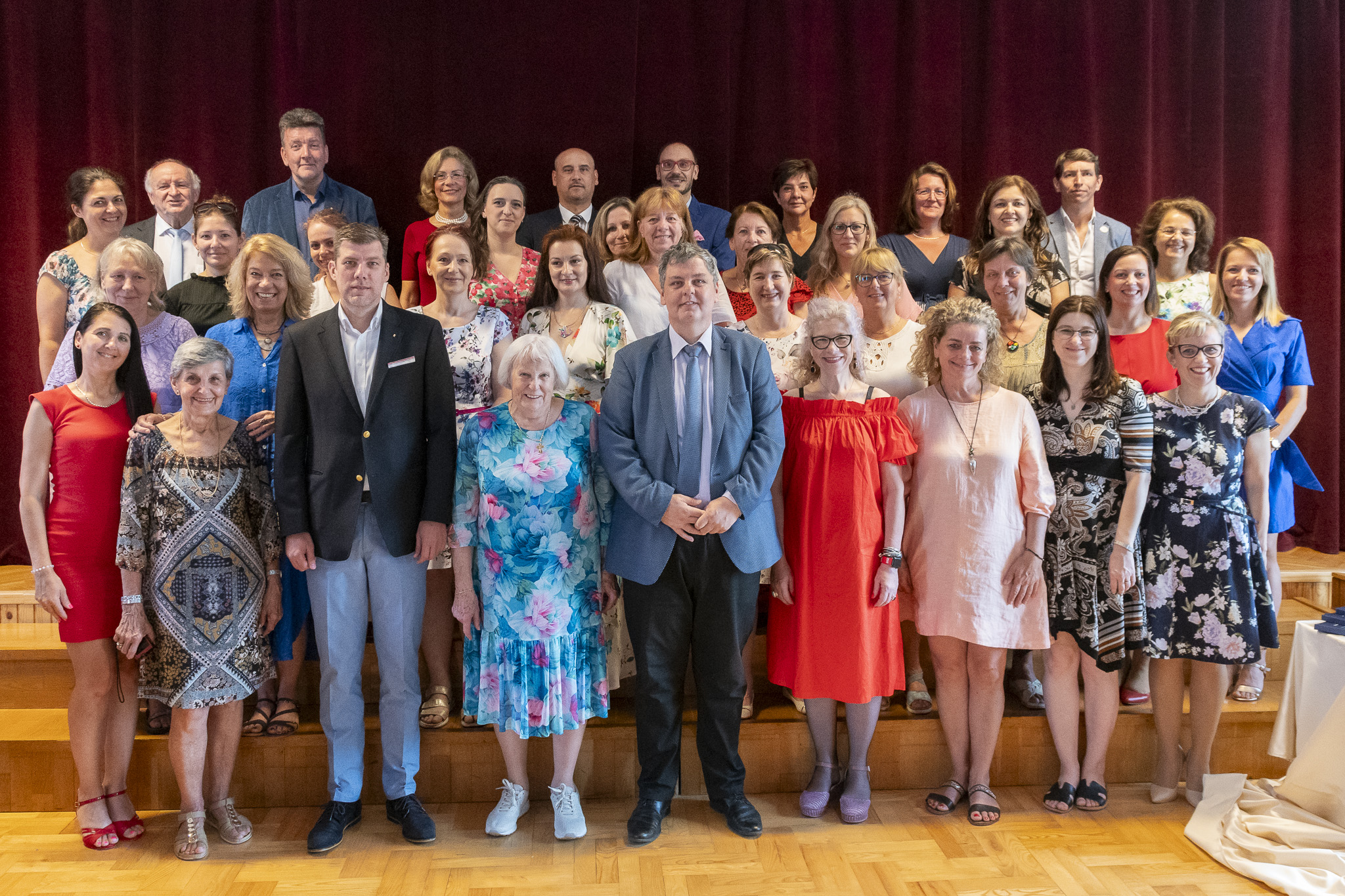SZE Hosts Master Class for Hungarian Language Teachers Abroad
From Switzerland to Australia, 21 participants from ten countries are taking part in the short study programme offering micro credential for teachers of Hungarian language and culture in the diaspora, which is being held by Széchenyi István University. The programme, supported by the State Secretariat for National Policy, will provide students with good practices that they can use to improve the quality of Hungarian education abroad.
In 2021, the Apáczai Csere János Faculty of Humanities, Education and Social Sciences of Széchenyi István University, building on the tradition of summer short study programme, which has a tradition of several decades, launched a two-semester course for teachers of Hungarian language and culture in the diaspora, which has since been completed by 74 students. This year, for the first time, the institution is offering a micro credential methodology master course for them, which will take place in face-to-face format between 7 and 12 July, and will continue with online exercises in the autumn semester. A total of 21 eager-to-learn teachers from Germany, Ireland, Switzerland, Austria, the United Kingdom, Austria, the United States, Canada, Argentina and Australia came to Győr for the programme.
At the opening ceremony, Dr Péter Szilágyi, Deputy State Secretary for National Policy, stated that Hungarian weekend schools are not only important places of learning, but also essential elements for the survival of Hungarians living in the diaspora, and therefore the Government will do everything possible to ensure their operation and support teachers. He thanked the Széchenyi University and the Apáczai Faculty for organising the master class, and addressed the participants, saying that "every day you are doing your part to bring Hungarian youth closer to their roots, their mother tongue and their national culture".

Participants at the opening ceremony - students gain practical knowledge that can be put to good use (Photo: Máté Dudás)
Dr Eszter Lukács, Vice-President for International and Strategic Relations of the University, stressed that the strategic goal of the institution is to be a global player, as this is the only way to contribute to Hungary's success. "To this end, we conduct a significant part of our research in English, and we are continuously strengthening our international network. Our campuses in Győr and Mosonmagyaróvár now have a truly intercultural atmosphere, thanks to the fact that our international student numbers are close to a thousand. At the same time, we know and believe that the survival of the Hungarian nation depends to a large extent on the teaching and transmission of the Hungarian language and culture, and therefore our aim is to have a positive impact on the social development of Hungarians. Through this programme, we want to help people living in the diaspora to understand and speak our wonderful language, even after several generations, and to be aware of the significant history and rich culture of our nation," he said. He added that the University attaches great importance to the transmission of the Hungarian language and culture to international students, which is why it has launched the two-semester Hungarian Language and Culture course, the Hungarian Language Mentoring Programme, the Hungarian Film Club and the Hungarian Club.
Gábor Móczár, director of the National Heritage Institute, said of the activities of your institution, "We are trying to find the experiential connection and methodology to the sites of memory, which is the most important goal in your work. Because only those who preserve their identity can preserve their Hungarian identity in the diaspora."
Dr Attila Pongrácz, Dean of the Apáczai Faculty, pointed out that with the help of the lecturers and the session leaders, the participants can gain good practices that they can use to develop their Hungarian identity abroad. "All this will also be a powerful professional help in building the spiritual community of world Hungarians", he underlined.
Dr Viktória Gősi Kövecsesné, the professional organizer of the course, underlined that theoretical knowledge becomes really useful when complemented with practical experience. "Thus, during the week, the participants will be able to get acquainted with playful methods of teaching history, nature and story-pedagogy, the possibilities offered by digital tools and artificial intelligence," she said, "In addition, drama pedagogy, the challenges of teaching Hungarian as a foreign language, issues related to pupils with special needs, the development of movement and speech, folk games, crafts will be on our programme."











